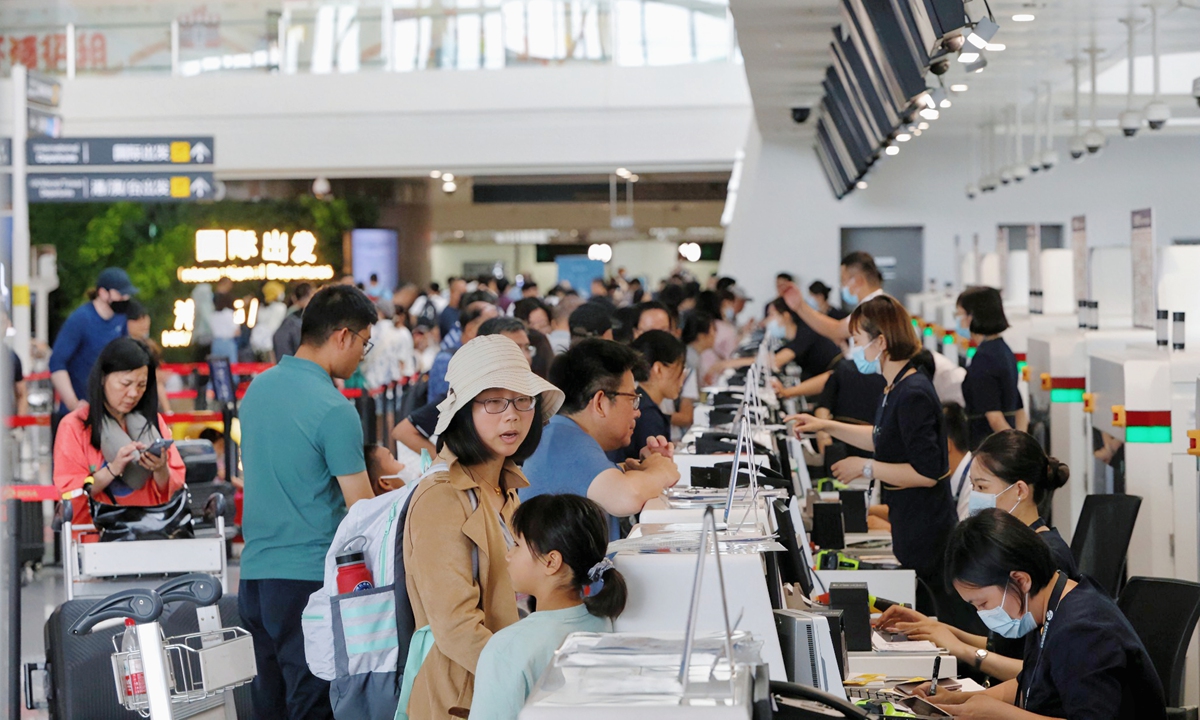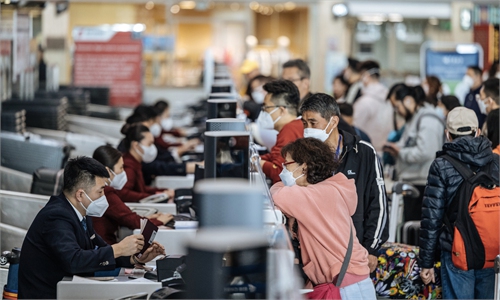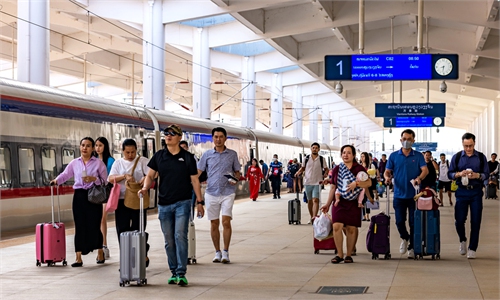Cross-border trips reach 168 million from Jan to June, 170% increase from 2022: China's immigration dept

Photo: Courtesy of Beijing Daxing International Airport
A total of 168 million cross-border trips were made in China in the first half of 2023, a 169.6 percent increase compared with the same period in 2022, said China's immigration department on Wednesday.
To respond to the border entry and exit needs of the public, the National Immigration Administration has fully restored immigration management policies and measures now that management of COVID-19 has been downgraded to Class B, the administration revealed at the Wednesday press briefing.
According to the administration, the 168 million cross-border trips, 48.8 percent of 2019's numbers, included around 80.3 million trips made by mainland residents, 74.9 million trips by residents from the regions of Hong Kong, Macao and Taiwan, as well as 8.4 million trips of foreigners.
From January to June, more than 10 million ordinary passports were issued, a 2,647.5 percent increase from 2022, while the number of documents issued for travel between the mainland and the regions of Hong Kong, Macao and Taiwan reached 42.8 million, almost as many as the number in 2019, said the administration. More than 379,000 foreigners in China were granted residence permits, accounting for 86.7 percent of the same period in 2019.
The rising number of cross-border travelers is the result of efforts to resume quick customs clearance procedure, ensure smooth customs clearance at ports, and the visa-free transit policy.
In May, Chinese immigration authorities fully resumed quick customs clearance procedures at ports and rolled out measures to make traveling between the Chinese mainland and the Hong Kong and Macao special administrative regions easier, which thrilled travelers, businesspeople and students as they can now easily pass the border by taking a few seconds to scan their faces and swipe passports or permits.
Besides resuming passenger transportation at 61 land border ports, visa-free policies have been restored that allow individuals to enter Hainan or enter Shanghai via cruises, as well as foreign tour groups to enter Guangdong from Hong Kong and Macao, and ASEAN tourist groups to enter Guilin.
Global Times



